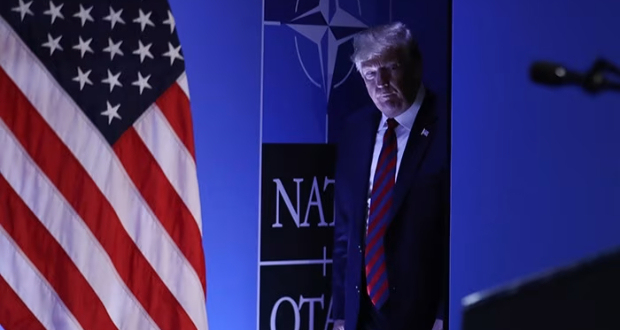Donald Trump was going to pull out of NATO. As the president’s motorcade powered through the early morning light of July 12, 2018, bound for a summit of the western military alliance, he called his national security adviser. “We’re being treated unfairly,” Trump said. “By January 1, all nations must commit to [increasing defence spending]. . . or we will walk out and not defend those who haven’t.”
Trump hung up, crossed his arms and smiled. As news of his decision spread through the US delegation that had travelled with him to Brussels for the summit, staff began to panic. But many of the alliance’s other leaders, who were already milling around a large conference table and making small talk, were unaware of what was barrelling towards them.
Trump’s hijacking of the 2018 NATO summit marked the biggest turning point in the history of the alliance that has guaranteed European security since 1949. The chaotic, 48-hour meeting crescendoed with the US president telling America’s allies that it would no longer protect Europe “carte blanche”.




